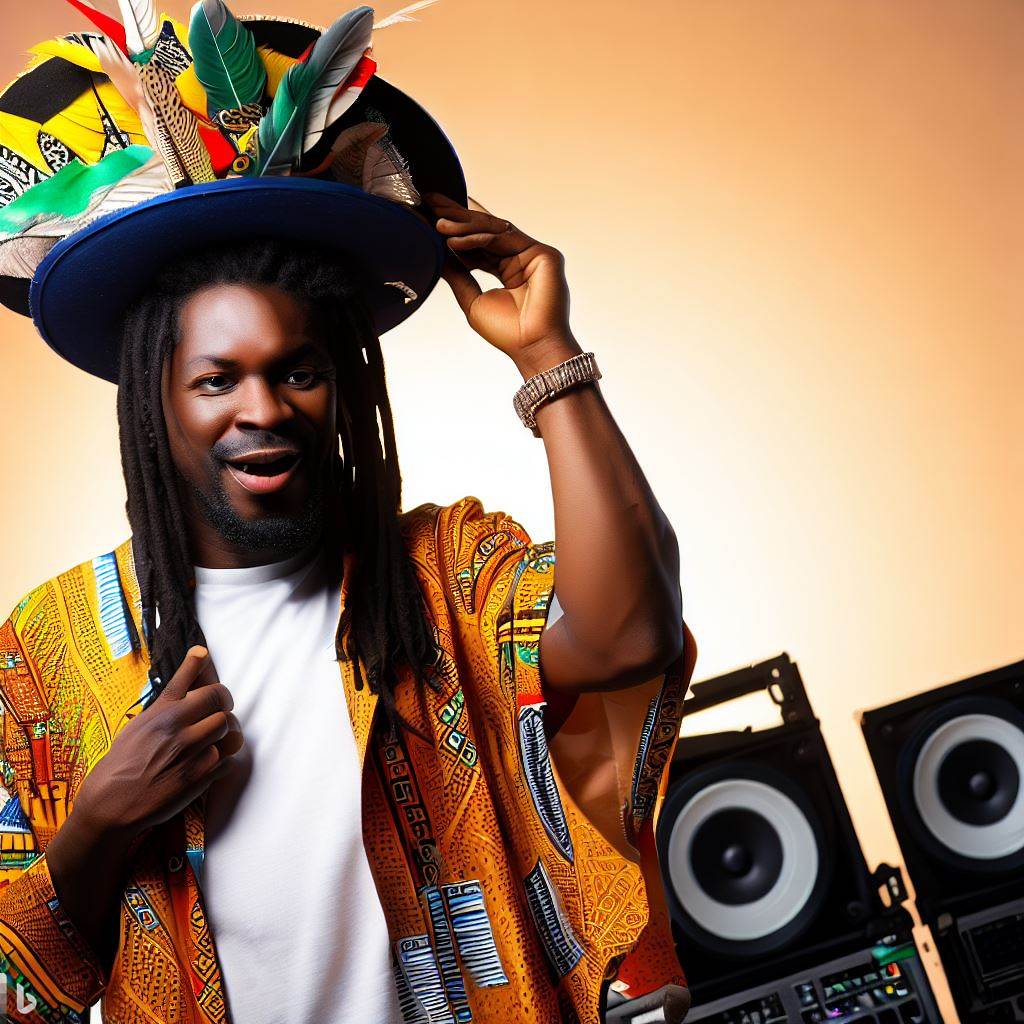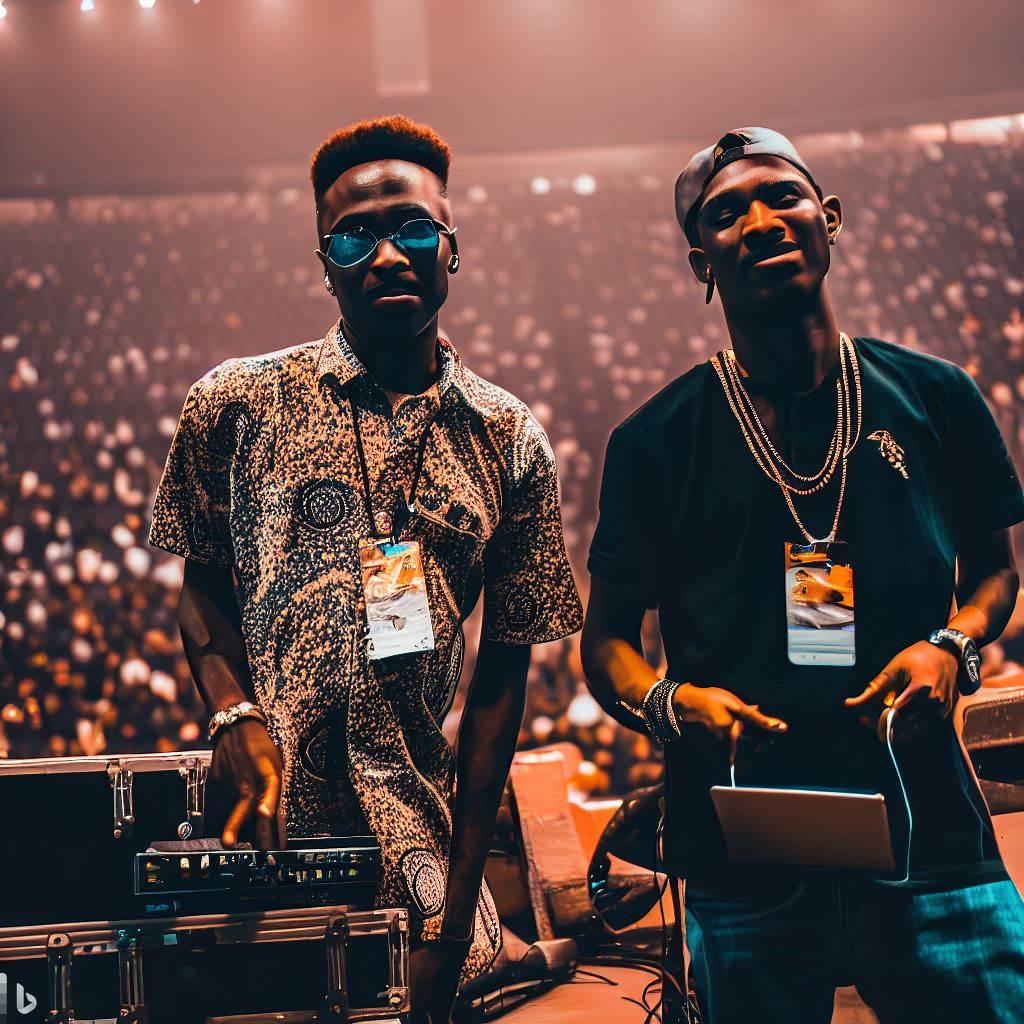Introduction
Engaging concert promoters in Nigeria: Concert promotion is a thriving industry in Nigeria, known for its vibrant music scene and enthusiastic audience.
Importance of cultural sensitivity in event planning: Event planners must understand and respect the cultural nuances of Nigeria to ensure successful concerts in the country.
Engaging Concert Promoters in Nigeria
- Network Building: Forge strong connections with local concert promoters who understand the Nigerian music scene.
- Collaborative Spirit: Embrace collaboration to tap into the deep well of talent Nigeria offers.
- Communication: Maintain open and transparent communication to ensure a harmonious working relationship.
The Significance of Cultural Sensitivity in Event Planning:
- Respect for Traditions: Cultural sensitivity respects Nigeria’s rich traditions and diverse ethnicities, fostering inclusivity.
- Artistic Authenticity: Incorporate authentic Nigerian elements into concerts to resonate with the audience.
- Avoiding Cultural Missteps: Awareness of cultural nuances prevents unintentional offense or misrepresentation.
- Community Engagement: Engage with local communities to ensure events align with their cultural values and beliefs.
Understanding and embracing cultural sensitivity are key to successful concert promotion in Nigeria, where music is a vibrant tapestry of traditions and modernity.
Understanding Nigerian culture
Overview of Nigeria’s diverse cultural landscape
- Nigeria is a country known for its rich cultural diversity and heritage.
- It is home to over 250 ethnic groups, each having its unique traditions and languages.
- The three major ethnic groups in Nigeria are Hausa, Igbo, and Yoruba, with numerous subgroups within them.
- Each ethnic group contributes to the country’s cultural tapestry, making Nigeria a vibrant and diverse nation.
Traditional customs, norms, and values
- Nigerian culture places great importance on respect for elders and authority figures.
- Traditional greetings involve a warm handshake, followed by inquiries about well-being and family.
- Nigerian cuisine reflects the country’s diverse ethnic groups, with staples like jollof rice, suya, and egusi soup.
- Traditional clothing varies across ethnic groups, with the agbada, gele, and dashiki being common attire.
- Nigerian weddings are elaborate celebrations that showcase cultural traditions, music, and dance.
Influence of religion on Nigerian society
- Nigeria is a religiously diverse country, with Islam and Christianity being the two dominant religions.
- Islamic cultures and practices are most prevalent in the northern regions of Nigeria, influenced by centuries of Islamic history.
- Christianity is embraced by a large portion of Nigerians, particularly in the southern regions.
- Religion permeates various aspects of Nigerian life, including education, politics, and social relationships.
- Both Islam and Christianity have shaped Nigerian society, influencing art, music, and even governance.
Understanding Nigerian culture is essential for concert promoters in Nigeria to successfully navigate and connect with the diverse population.
Nigeria’s cultural landscape is marked by its ethnic diversity, traditional customs, and religious influences.
By respecting and incorporating these cultural nuances into their promotions, concert promoters can create events that resonate with the Nigerian audience.
Read: Challenges and Triumphs in Nigerian Journalism
Challenges faced by concert promoters
Lack of cultural understanding leading to inappropriate event planning
- Ignorance of local customs and traditions can result in offensive content during performances.
- Misunderstanding the importance of certain cultural rituals may lead to delays and misunderstandings.
- Inadequate knowledge of local tastes and preferences may result in poor artist selection.
- Lack of understanding regarding appropriate venues for specific types of concerts can hinder success.
Cultural clashes between performers and audience
- Contrasting artistic expressions and behaviors may be misunderstood or rejected by the local audience.
- Failure to adapt performances to the cultural context can lead to disappointment and dissatisfaction among attendees.
- Language barriers can make it difficult for performers to connect with the audience effectively.
- Differences in etiquette and audience participation expectations can cause confusion and discomfort.
Negative impact on event’s success and reputation
- Offending the local audience may result in a significant decline in ticket sales and attendance.
- Negative publicity due to cultural insensitivity can damage the reputation of the concert promoter.
- Receiving backlash from the audience and local communities can lead to boycotts and future event cancellations.
- Failing to acknowledge and respect cultural sensitivities can hinder the growth and expansion of the concert industry in Nigeria.
In order to overcome these challenges, concert promoters in Nigeria should take certain measures:
- Conduct thorough research and engage cultural advisors to gain insights into local customs and practices.
- Collaborate with local artists and performers who have a deep understanding of the cultural context.
- Organize focus groups and surveys to gather information on audience expectations and preferences.
- Provide comprehensive guidelines to performers regarding cultural sensitivities, appropriate behavior, and content.
- Invest in language interpretation services to bridge communication gaps between performers and the audience.
- Choose venues that align with the nature of the performance and consider cultural appropriateness.
- Actively listen to feedback from the audience and address any concerns or issues promptly.
- Establish partnerships with local organizations and communities to foster mutually beneficial relationships.
- Educate and train staff members on cultural diversity, ensuring they are sensitive and respectful in their interactions.
Concert promoters in Nigeria can craft impactful events by valuing cultural sensitivity, resonating with locals, and fostering music industry growth.
Read: Daily Life of a Nigerian Sound Effects Editor
Importance of cultural sensitivity for concert promoters
Enhancing event attendees’ experience
- Cultural sensitivity helps promote concerts that resonate with the Nigerian audience’s preferences and values.
- Understanding cultural nuances allows concert promoters to curate lineups that cater to diverse musical tastes.
- Consistent cultural sensitivity in event planning ensures a better overall experience for attendees.
- Recognising and respecting local customs and traditions can create a more immersive and enjoyable concert atmosphere.
- By catering to the cultural preferences of the audience, concert promoters can create a more memorable and meaningful event.
Fostering mutual respect and understanding
- Cultural sensitivity promotes inclusivity and prevents any unintentional offense or misrepresentation.
- It allows concert promoters to avoid appropriating or exploiting cultural elements for commercial gain.
- By being culturally sensitive, concert promoters avoid perpetuating stereotypes or reinforcing harmful biases.
- Respecting Nigerian culture shows a commitment to valuing diversity and creates a positive image for the promoter.
- Cultural sensitivity fosters a sense of understanding and respect between concert promoters and the Nigerian community.
Building long-lasting relationships with Nigerian artists and audiences
- Concert promoters who demonstrate cultural sensitivity build trust and rapport with Nigerian artists.
- By supporting local talent and incorporating Nigerian music into concerts, promoters can foster collaboration and partnership.
- Cultural sensitivity allows promoters to navigate negotiation and communication with artists with respect and understanding.
- Understanding Nigerian cultural values helps concert promoters forge connections with local communities, leading to future collaborations.
- By prioritizing cultural sensitivity, promoters can create a loyal and dedicated fan base in Nigeria.
Concert promoters in Nigeria prioritise cultural sensitivity, enriching attendees’ experiences, nurturing respect, understanding, and forging lasting ties with artists and audiences.
By grasping and honouring Nigerian cultural nuances, concert promoters can succeed, gaining value as music industry contributors.
Read: Building a Makeup Artist Portfolio in Nigeria: Tips & Tricks

Learn More: Nigeria’s Journalism Landscape: Past, Present, Future
Tips for culturally sensitive event planning
Research and understand the local culture
- Conduct thorough research on the cultural norms, customs, and traditions of Nigeria.
- Familiarize yourself with important festivals, holidays, and significant cultural events.
- Understand the social dynamics, languages, and regional differences within the country.
- Incorporate elements of the local culture into your event to show respect and appreciation.
Collaborate with local artists and professionals
- Seek collaborations with Nigerian artists, musicians, and performers to promote cultural authenticity.
- Engage local event planners, caterers, and suppliers to grasp the nuances of Nigerian event management.
- Benefit from their knowledge and expertise in order to ensure a successful and culturally sensitive event.
Avoid offensive or insensitive content
- Understand cultural taboos and ensure that your event does not include offensive or inappropriate content.
- Avoid using symbols, gestures, or language that may be deemed disrespectful by the local culture.
- Conduct sensitivity training for your staff to ensure they understand and uphold cultural sensitivities.
- Prioritize inclusivity and create an environment that celebrates diversity and respects all attendees.
Pay attention to dress code and appropriate behavior
- Be aware of the local dress code expectations and communicate them clearly to all participants.
- Respect modesty norms and ensure that everyone feels comfortable and appropriately dressed.
- Establish guidelines for behavior that align with local customs to avoid any cultural misunderstandings.
- Appoint staff members who can address any issues related to dress code or behavior sensitively.
Consider religious holidays and traditions
- Be aware of the major religious holidays and their significance in Nigeria.
- Schedule your event avoiding conflicting dates with important religious observances.
- If your event coincides with a religious holiday, acknowledge it appropriately and be respectful.
- Consider the dietary restrictions and preferences associated with certain religious traditions.
Provide diverse food and beverage options
- Offer a range of food and beverage options that cater to different dietary preferences and restrictions.
- Include traditional Nigerian dishes and ingredients to showcase the local cuisine.
- Accommodate vegetarian, vegan, and gluten-free options to cater to diverse attendees.
- Clearly label the food options to inform attendees of any potential allergens or ingredients they may want to avoid.
By following these tips, concert promoters in Nigeria can create culturally sensitive events that celebrate the local culture, respect traditions, and promote inclusivity.
To ensure a successful and culturally sensitive event, understand local culture, collaborate with local experts, respect dress codes, and offer diverse food.
Read: Bridging the Gap: Foley Artist Opportunities in Nigeria’s Music Industry
Delve into the Subject: A Day in the Life of a Performers’ Manager in Nigeria
Case studies of successful culturally sensitive events in Nigeria
Highlighting examples of well-executed concerts
- Felabration: Felabration is an annual music festival held in Lagos that celebrates the life and music of Fela Kuti, a Nigerian musician and political activist.
The organizers make sure to incorporate elements of Nigerian culture, such as traditional music and dance performances, alongside contemporary music genres.
This creates a vibrant and inclusive atmosphere that resonates with the audience. - Afro Nation Festival: Afro Nation is a music festival that brings together a diverse lineup of African and international artists.
The organizers take cultural sensitivity seriously by showcasing various music genres from different regions of Africa.
They also prioritize diversity and inclusivity by promoting female artists and featuring local talents.
This commitment to representing the rich cultural heritage of Nigeria and Africa as a whole helps create a truly authentic experience for the attendees.
Lessons learned from these events
- Research and understand the local culture: Successful concert promoters invest time and effort into studying and understanding the cultural nuances of Nigeria.
This helps them identify traditional and contemporary elements that can be incorporated into the event to enhance the cultural experience for the audience. - Collaborate with local artists and talent:Working hand in hand with local artists not only brings an authentic touch to the event but also provides opportunities for emerging artists to showcase their talent.
By involving local talents, concert promoters can tap into their knowledge of Nigerian culture and ensure performances are culturally relevant. - Engage with the community: Concert promoters who make an effort to engage with the local community can gain valuable insights.
This can be done through partnerships with local businesses, NGOs, or cultural organisations.
Such collaborations foster trust and authenticity, allowing the event to be better received by the audience.
Positive impact on audience satisfaction and event success
- Increased attendance: Culturally sensitive events are more likely to attract a larger audience as they cater to the diverse interests and tastes of the attendees.
By providing a platform that honors and showcases Nigerian culture, concert promoters can tap into a wider demographic and increase event attendance. - Enhanced audience experience: Culturally sensitive events create a deeper connection with the audience, leading to a more memorable experience.
When the performances, themes, and overall atmosphere align with the cultural identity of the attendees, they feel a sense of belonging and pride, resulting in higher satisfaction levels. - Positive word-of-mouth and reputation:Events that successfully incorporate cultural sensitivity are more likely to generate positive buzz within the community.
Attendees sharing positive experiences boost the promoter’s reputation, potentially attracting new participants to future events.
Highlighting case studies of well-executed concerts in Nigeria serves as a testament to the importance of cultural sensitivity in event planning.
Concert promoters understanding local culture, collaborating with talents, and engaging the community create events that entertain, honour, and celebrate Nigeria’s heritage.
The positive impact on audience satisfaction and event success further emphasizes the significance of cultural sensitivity in concert promotion.
Learn More: Animation Festivals in Nigeria: A Director’s Diary
Conclusion
Cultural sensitivity plays a crucial role in the success of concert promoters in Nigeria.
To ensure future event planning efforts are successful, it is essential to be culturally sensitive.
The Significance of Cultural Sensitivity:
- Respect for Traditions: Cultural sensitivity fosters respect for Nigeria’s rich and diverse traditions.
- Artistic Authenticity: Incorporating local elements enhances audience connection and event authenticity.
- Avoiding Missteps: Awareness prevents cultural misunderstandings and potential offense.
- Inclusivity: Cultural sensitivity ensures events appeal to a broad range of Nigerians, promoting unity.
Encouragement for Future Event Planning:
- Embrace Diversity: Make cultural sensitivity a cornerstone of every event, celebrating Nigeria’s multiplicity.
- Collaborate Locally: Work closely with Nigerian talents, promoters, and communities to honor their culture.
- Continuous Learning: Stay open to evolving cultural dynamics and adapt event planning accordingly.
- A Unified Celebration: Together, we create concerts that resonate with Nigeria’s rich cultural tapestry, uniting hearts and minds.
Let cultural sensitivity guide your event planning, and watch as your concerts truly harmonize with Nigeria’s diverse and vibrant soul.




